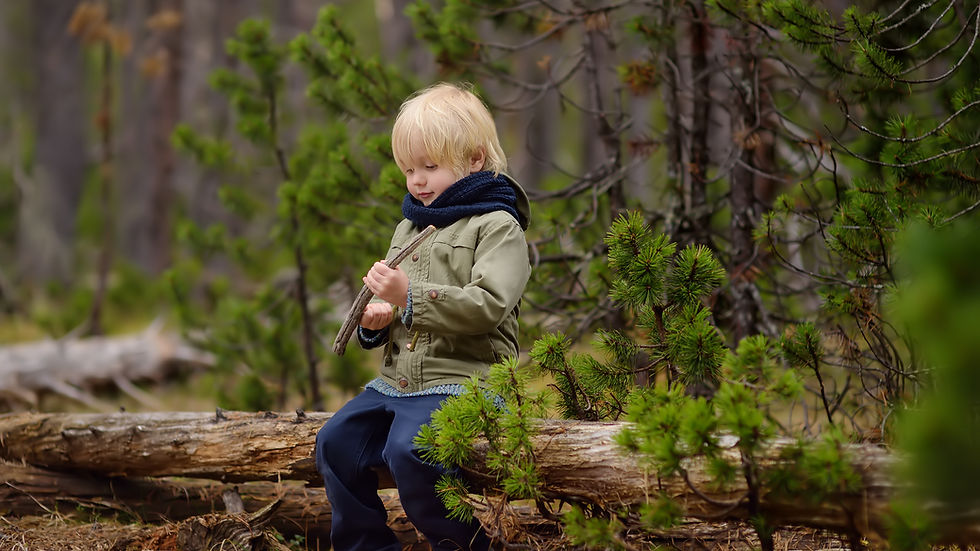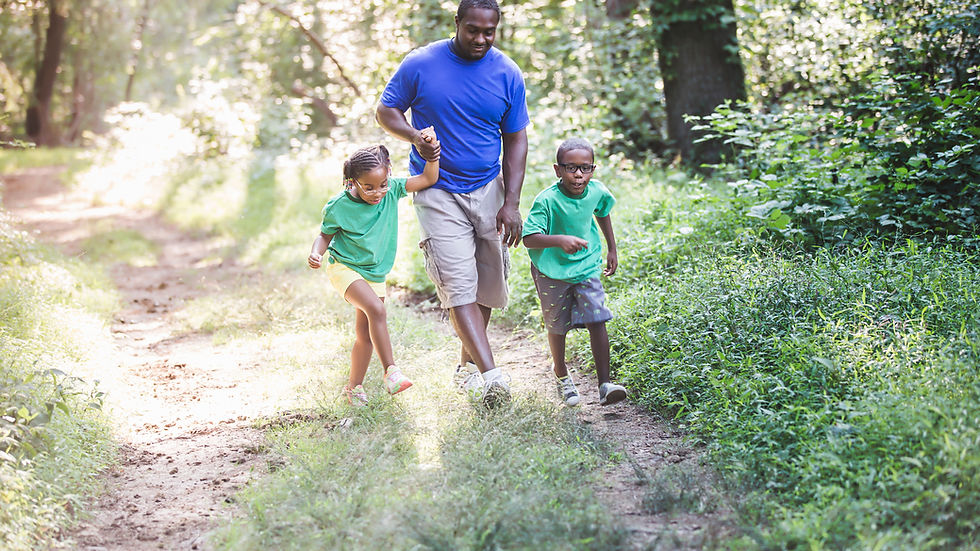Forest Schools: A Pathway to Growth
- Curious Roots Collective

- Oct 20, 2025
- 4 min read
Updated: Jan 19
Understanding Forest Schools
Forest Schools are educational programs conducted in natural settings. They emphasize hands-on learning, allowing children to engage with their environment actively. This philosophy is based on the idea that children learn best when involved in their educational journey. Such an approach is especially beneficial for children with special needs, as it provides opportunities to explore and learn at their own pace.
The curriculum in Forest Schools is flexible and often child-led, focusing on activities that promote physical engagement, creativity, and social interaction. For example, students may participate in activities like building a small shelter or foraging for natural materials to create art. Immersion in nature encourages children to develop essential skills while enhancing their physical health.
The Importance of Motor Skills Development
Motor skills fall into two categories: fine and gross motor skills. Fine motor skills involve smaller muscles of the hands and fingers, vital for tasks like writing and using utensils. Gross motor skills involve larger muscle groups and are essential for activities such as running, jumping, and climbing.
For children with special needs, developing these skills can be difficult. Traditional classroom settings often lack the physical activity necessary for this growth. Forest Schools create a dynamic environment that nurtures motor skills through play and exploration, making a real difference in children's ability to learn and grow.
Fine Motor Skills Development in Forest Schools
Fine motor skills are crucial for daily tasks and impact a child's independence. In a Forest School setting, children engage in various activities promoting these skills. For instance, they might craft using twigs, leaves, and stones. A study found that children who frequently engage in fine motor activities improve hand-eye coordination by up to 30%.
Activities like building small shelters or creating art from natural elements require coordination and control. These tasks help enhance grip strength and dexterity. Furthermore, the varied textures of natural materials stimulate sensory development, which is crucial for children with special needs. For example, children may learn to tie knots with grass or string, developing fine motor skills while having fun.

Gross Motor Skills Development in Forest Schools
Gross motor skills lay the foundation for physical fitness and overall health. Forest Schools provide ample opportunities for children to participate in activities that develop these skills. Climbing trees, navigating uneven terrain, and playing group games all contribute to enhanced strength, balance, and coordination.
For instance, a recent report showed that children engaging in outdoor physical activities at Forest Schools improved their cardiovascular health by up to 25%. The natural environment allows kids to move freely and explore their capabilities. This freedom is essential for children with special needs, enabling them to challenge themselves in a safe setting.
The Role of Nature in Motor Skills Development
Nature plays a vital role in enhancing motor skills for children with special needs. The diverse terrain and textures in a forest present unique challenges that stimulate physical activity. For example, walking over rocks or logs enhances balance and coordination, while climbing improves strength and agility.
Interaction with nature—feeling tree bark, listening to birds, and observing seasonal changes—provides sensory experiences that a traditional classroom cannot match. These experiences boost motor skills and cultivate a connection to the environment, which is especially beneficial for children with special needs.
Social Interaction and Teamwork
Forest Schools also encourage social interaction and teamwork, essential for motor skills development. Many activities require children to collaborate, whether they are building a fort or playing games. This teamwork fosters communication, problem-solving, and social skills—crucial areas for children with special needs.
Through these collaborative experiences, children learn to navigate social relationships, share tasks, and support each other. As a result, they often develop increased confidence and self-esteem, further promoting their overall development.
Overcoming Barriers to Physical Activity
Children with special needs frequently face obstacles to physical activity, including physical limitations, social anxiety, or limited access to suitable programs. Forest Schools address these barriers by offering an inclusive and supportive environment. The focus on play and exploration allows children to participate in activities at a comfortable pace, minimizing the pressures typically found in traditional educational settings.
Additionally, the natural landscape can feel less intimidating for some children, promoting engagement and willingness to participate. This sense of belonging is transformative, encouraging kids to take risks and explore new activities they may have previously avoided.
The Long-Term Benefits of Forest Schools
The advantages of Forest Schools extend far beyond immediate motor skills development. Participating in outdoor physical activities can lead to lasting health benefits for children with special needs. Consistent physical activity is linked to enhanced cardiovascular health, stronger muscles and bones, and overall fitness.
Moreover, the skills developed in Forest Schools can translate into other life areas. Improved motor skills increase a child's ability to join in sports, manage daily activities, and gain independence. The confidence built from overcoming challenges in a nurturing environment can also improve their mental health and overall well-being.
Embracing Nature’s Potential
In summary, Forest Schools present a unique and effective educational approach for children with special needs, significantly impacting their physical health and motor skills development. By offering an engaging outdoor environment, these programs cultivate fine and gross motor skills through hands-on experiences in nature.
The benefits of Forest Schools extend beyond physical health. They foster social interaction, teamwork, and general well-being. As we continue to explore innovative educational strategies, it is essential to recognize the immense potential of Forest Schools. By prioritizing outdoor activity, we can unlock opportunities for children with special needs to thrive, helping them succeed where traditional classrooms may fall short.
The journey towards enhancing motor skills and physical health for children with special needs is ongoing. Forest Schools stand at the forefront of this effort, paving the way for a healthier, brighter future.



%20(2).png)


Comments